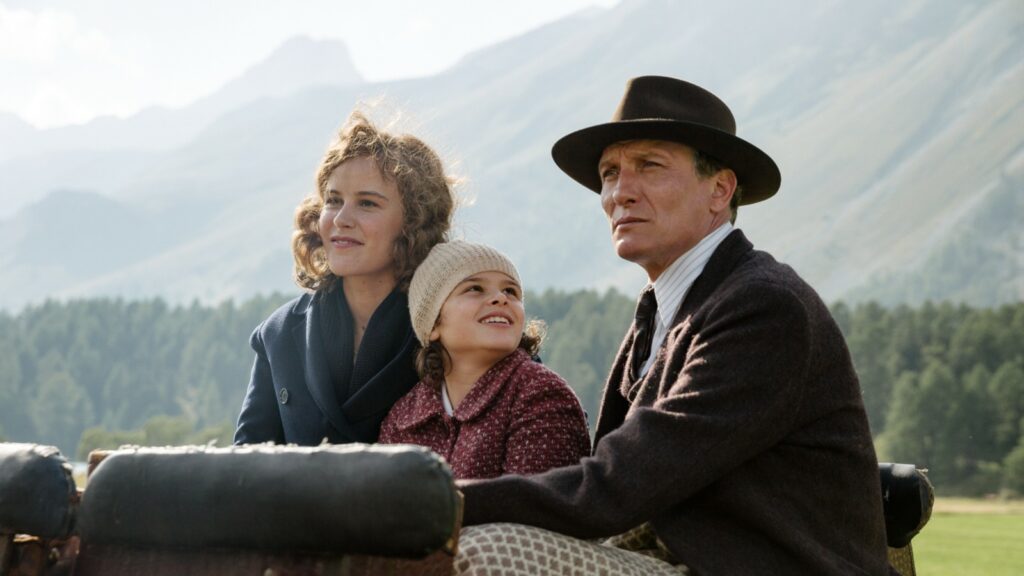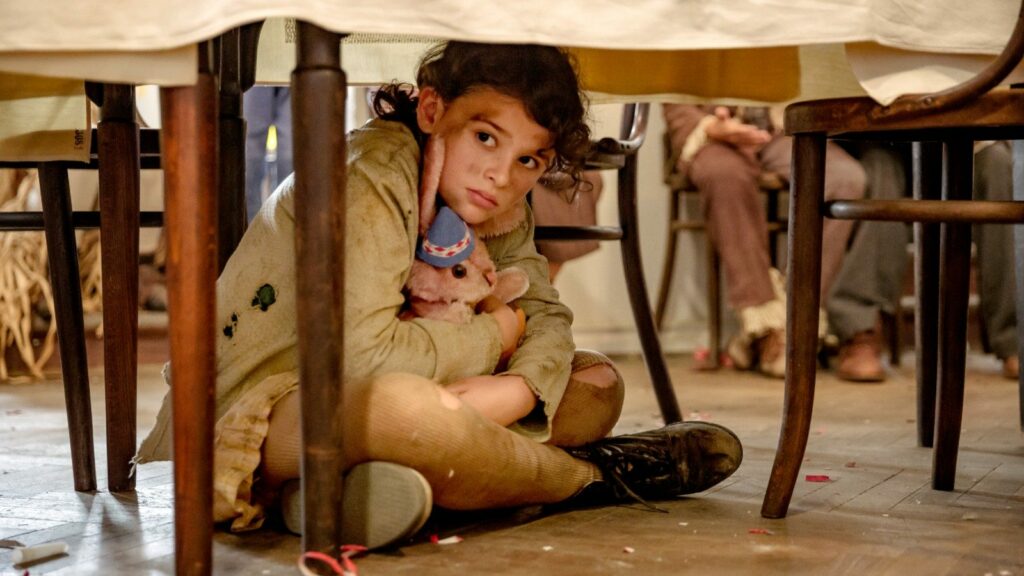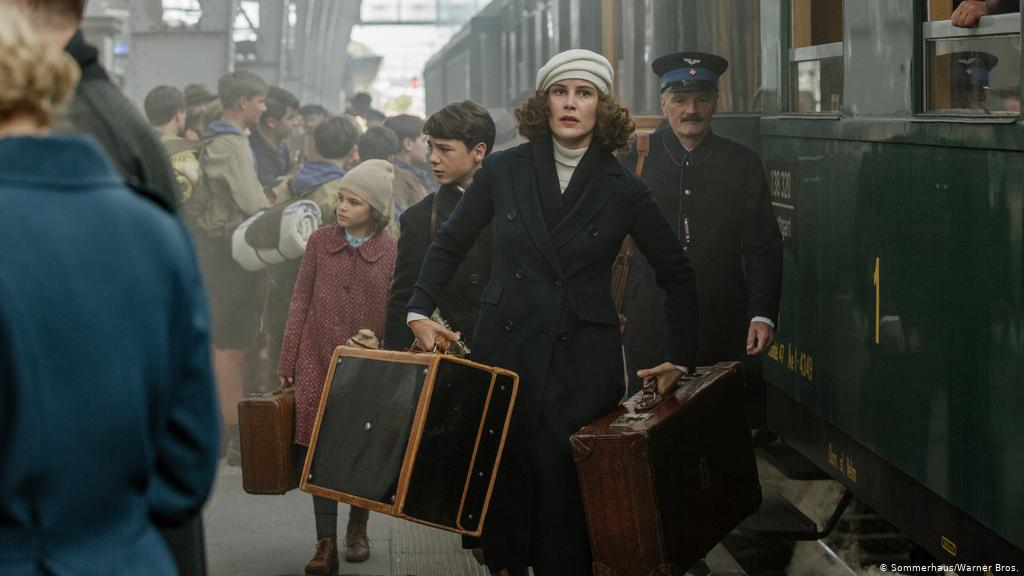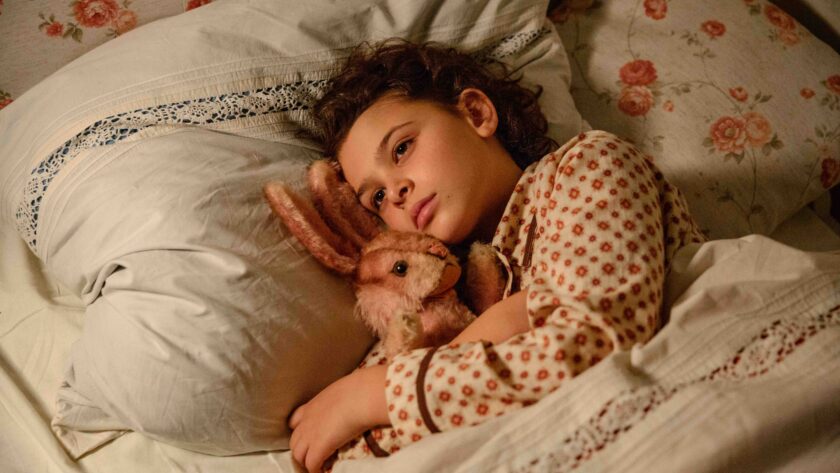Ellie Lachs reviews this inspiring German tale of familial bonds and resilience.
This year’s Jewish Film Festival kicked off with Caroline Link’s adaptation of Judith Kerr’s novel, When Hitler Stole Pink Rabbit. Set in a Germany on the brink of electing Hitler to power, the film follows the escape of a Jewish family named the Kempers. It is predominantly narrated from the point of view of the youngest daughter, Anna (Riva Krymalowski), which allows it to pivot between moments of child-like innocence, and the grave, sombre reality of Germany’s ever growing inhospitality.
Oliver Masucci plays Arthur Kemper, an outspoken critic and writer whose name becomes one of many on the Nazis’ hitlist of cultural and political opponents. Unlike most Jewish families in 1930s Germany, the Kempers are firmly – but luckily – advised by a local, ‘friendly’ police officer to leave the country.

From the beginning, the film is littered with details that remind us of its bleak and serious historical context: from the opening play fight scene between Max Kemper (Marinus Hohmann) and a gaggle of young Nazis, to the presence of suspicious and spying neighbours, not to mention Arthur’s sudden and alarming departure. All of this firmly implants a sense of dread and anticipation from its audience. We know that tragedy is no stranger to most stories about the holocaust. However, the film quickly veers from such anticipations and offers us something that is actually far more uplifting than what we might expect.
The Kemper family leaves Berlin and migrates to Zurich, followed by Paris and finally London. The film becomes an inspiring test of familial bonds and resilience: the Kempers’ voyage comes with a large number of trials, whether it be learning a new language, finding work, or simply learning the cultural norms of a new place. As viewers, we are transported across Europe with the resounding and poetic reminder that ‘if you spend your life dreaming about Berlin, you’ll miss all the wonderful new things’.

And the film certainly is full of ‘wonderful new things’ for the Kempers. As they cross over the rolling hills of Switzerland, feast on melted cheese, and drive through the bustling streets of Paris, it’s easy to forget the grim context that places them there. The Kemper children adapt to their new life with admirable alacrity, even if their path to assimilation is accented by embarrassing slip-ups and repeated frustrations.
One could argue that the film offers an overly rose-tinted version of events; moments of strife are so quickly resolved and replaced with familial love and affection that they fail to really hammer home the feelings of disquiet and upset that usually accompany holocaust narratives. However, maybe this is the point… After centuries of Jewish pogroms, the Kempers’ newly acquired ‘refugee’ status is almost written into their DNA; their journey becomes a nod to those of their Jewish ancestors. This film is not about suffering, but about surviving.
This isn’t to say that it’s all smooth sailing for the main characters: in fact, the idea of a ‘difficult childhood’ becomes something of a running motif. The Kempers have to deal with money struggles, swathes of antisemitic remarks, and uncle Louis’ death – which offers a stern warning of the lengths to which the Nazis are willing to go to exercise their power. But regardless, the notions of family and resilience remain at the centre of the story.

Instead of recounting the tragedy we’d expected, When Hitler Stole Pink Rabbit reminds us that in times of strife, strength can be found through necessity. The Kempers ‘may not have a home in one country’, but they do have ‘a bit of a home in each and every country’, which is, for all intents and purposes, a far more exciting position to be in.
This film illustrates the solidarity and resilience required to survive in the face of hardships. As Anna puts it, ‘if we have no home, we have to stay together, otherwise we’ll get lost.’ In this current turbulent political climate, we can all learn from the example of the Kemper family.




